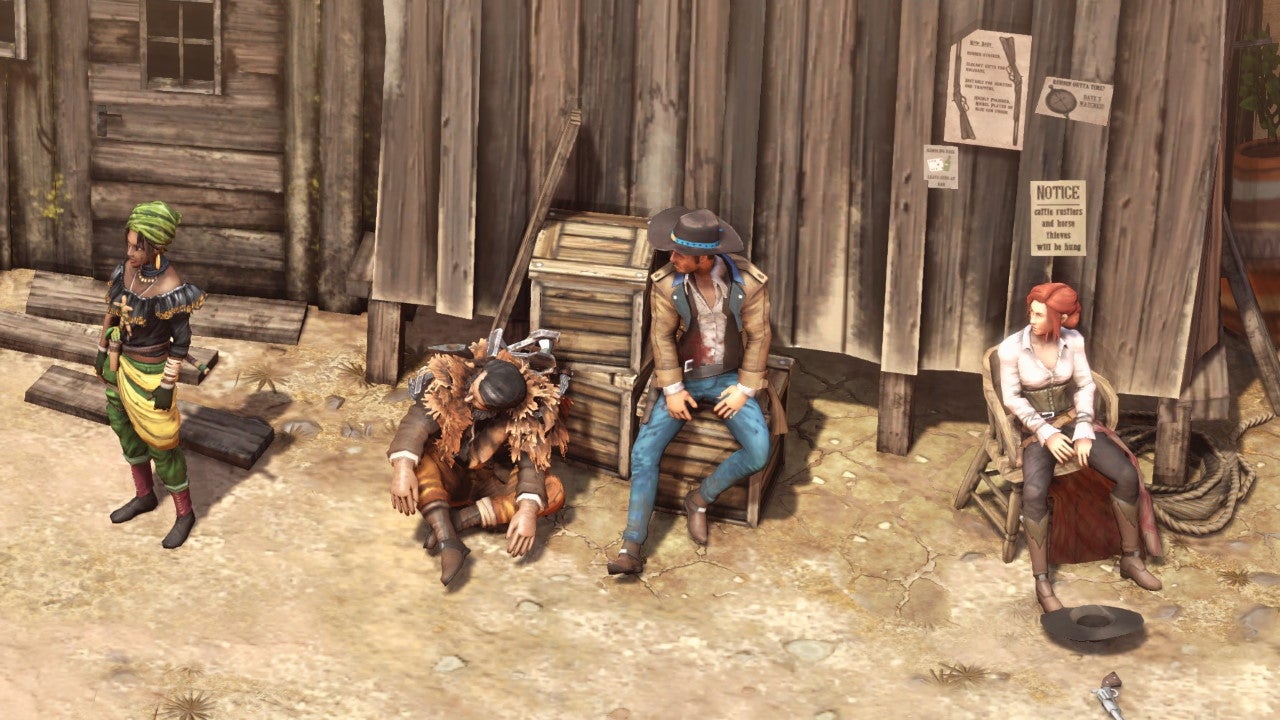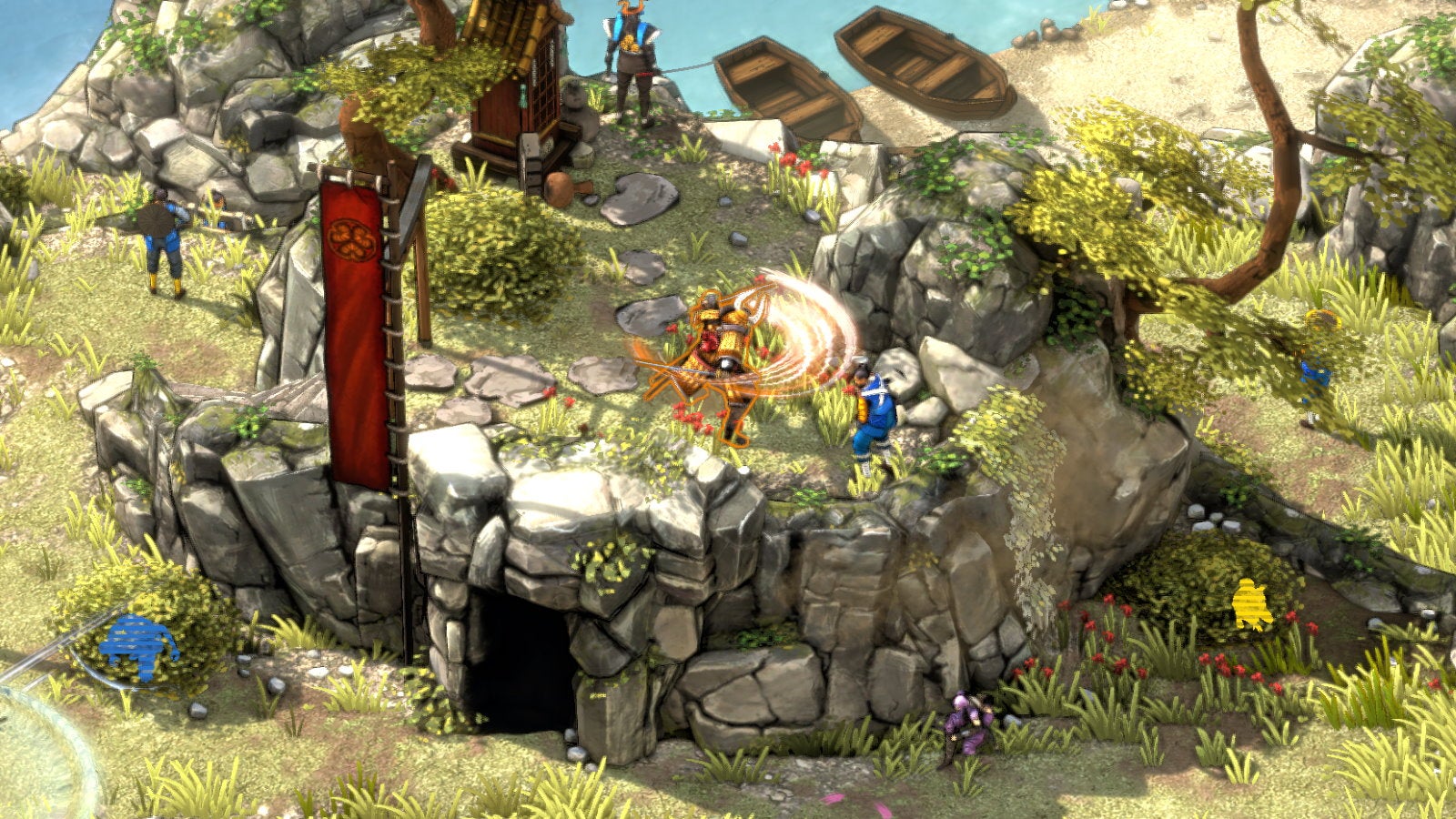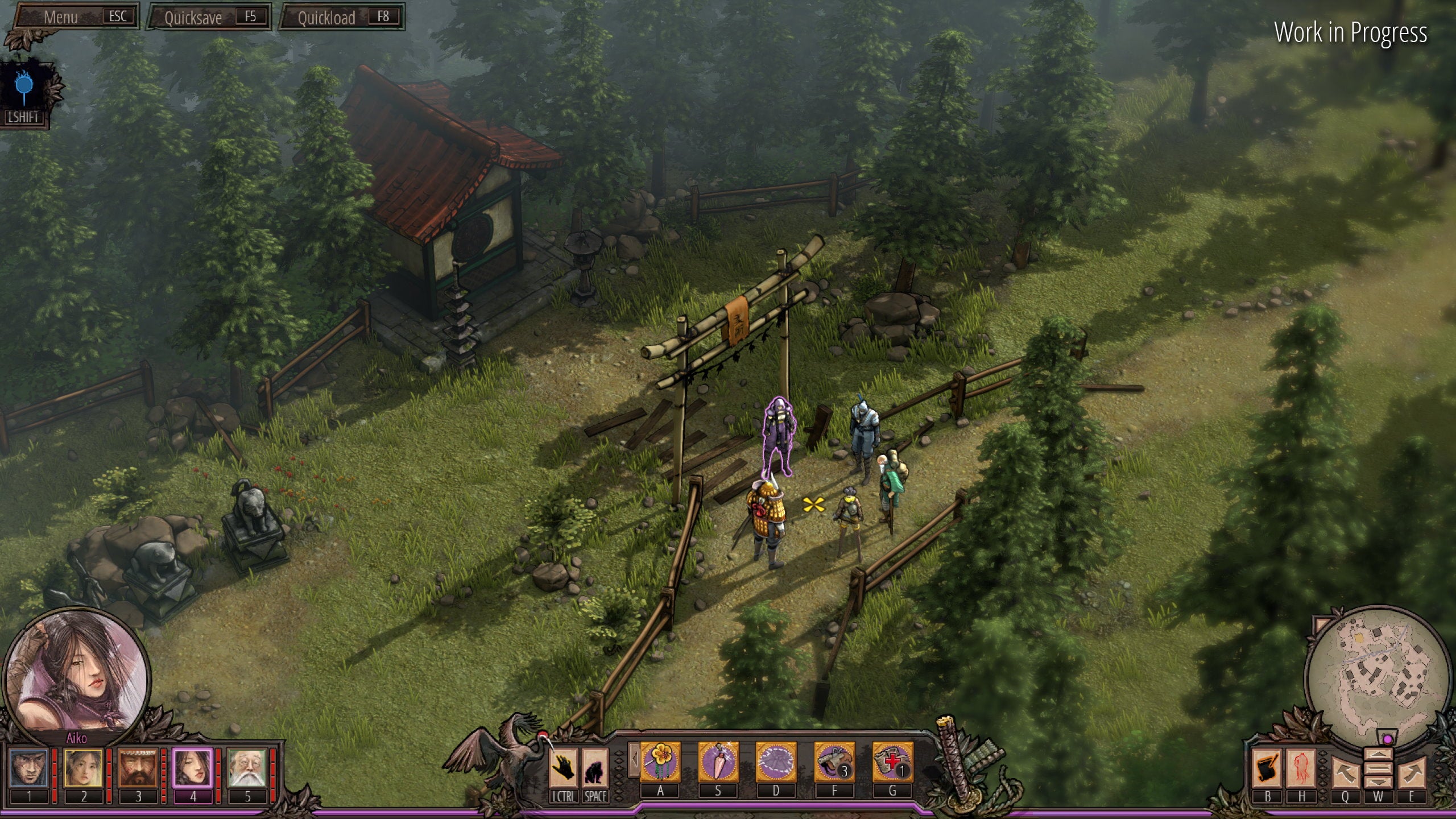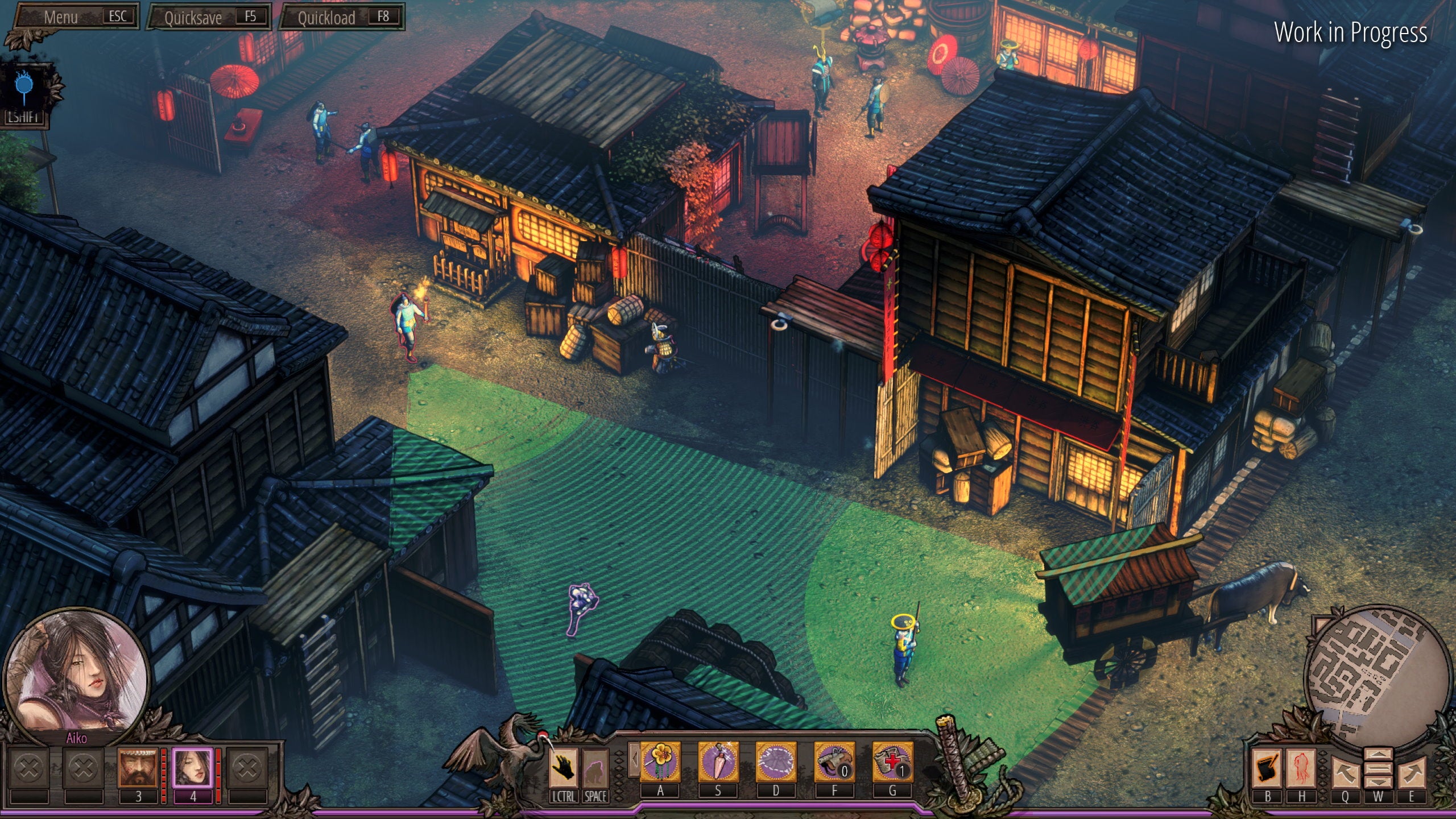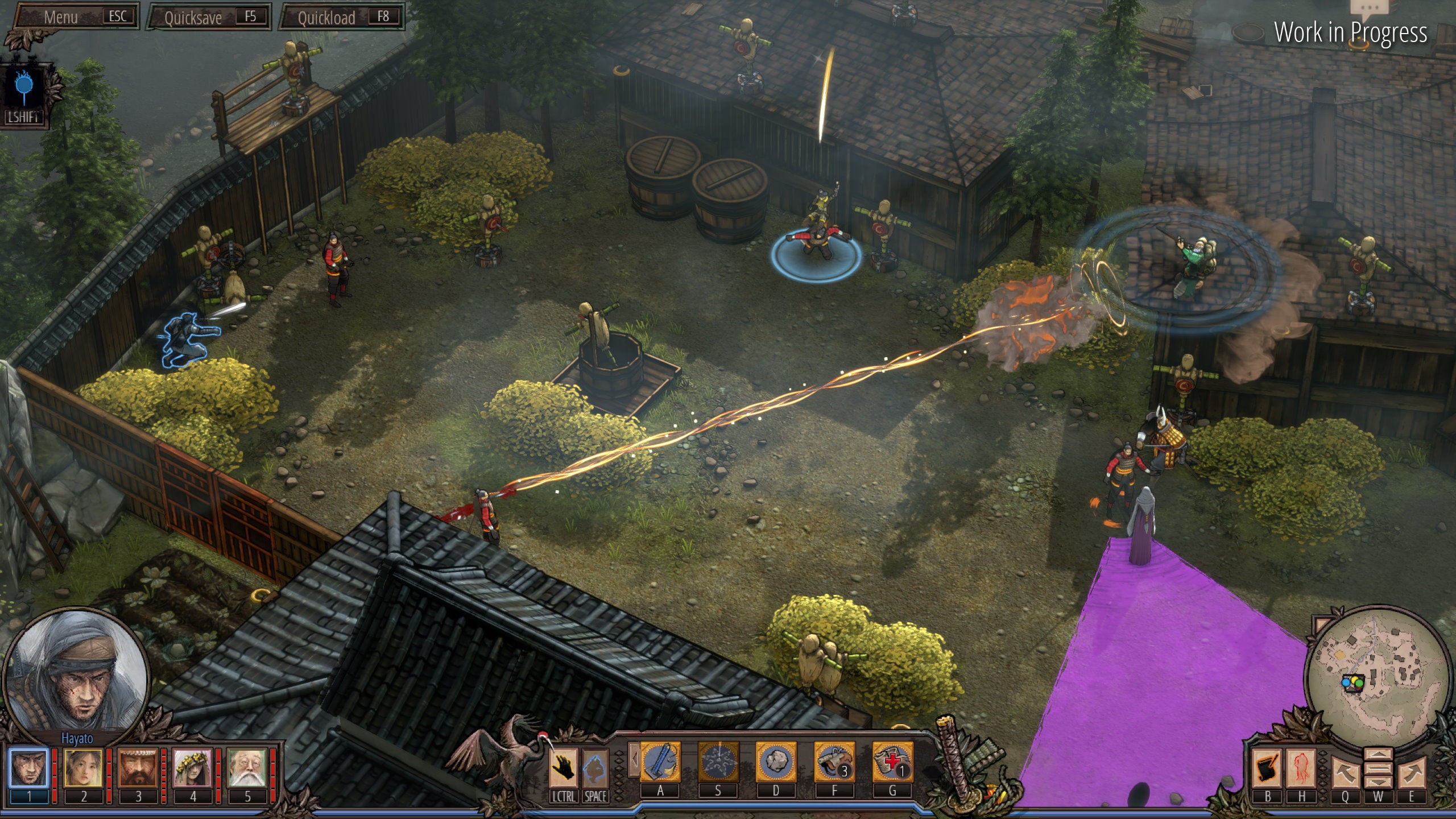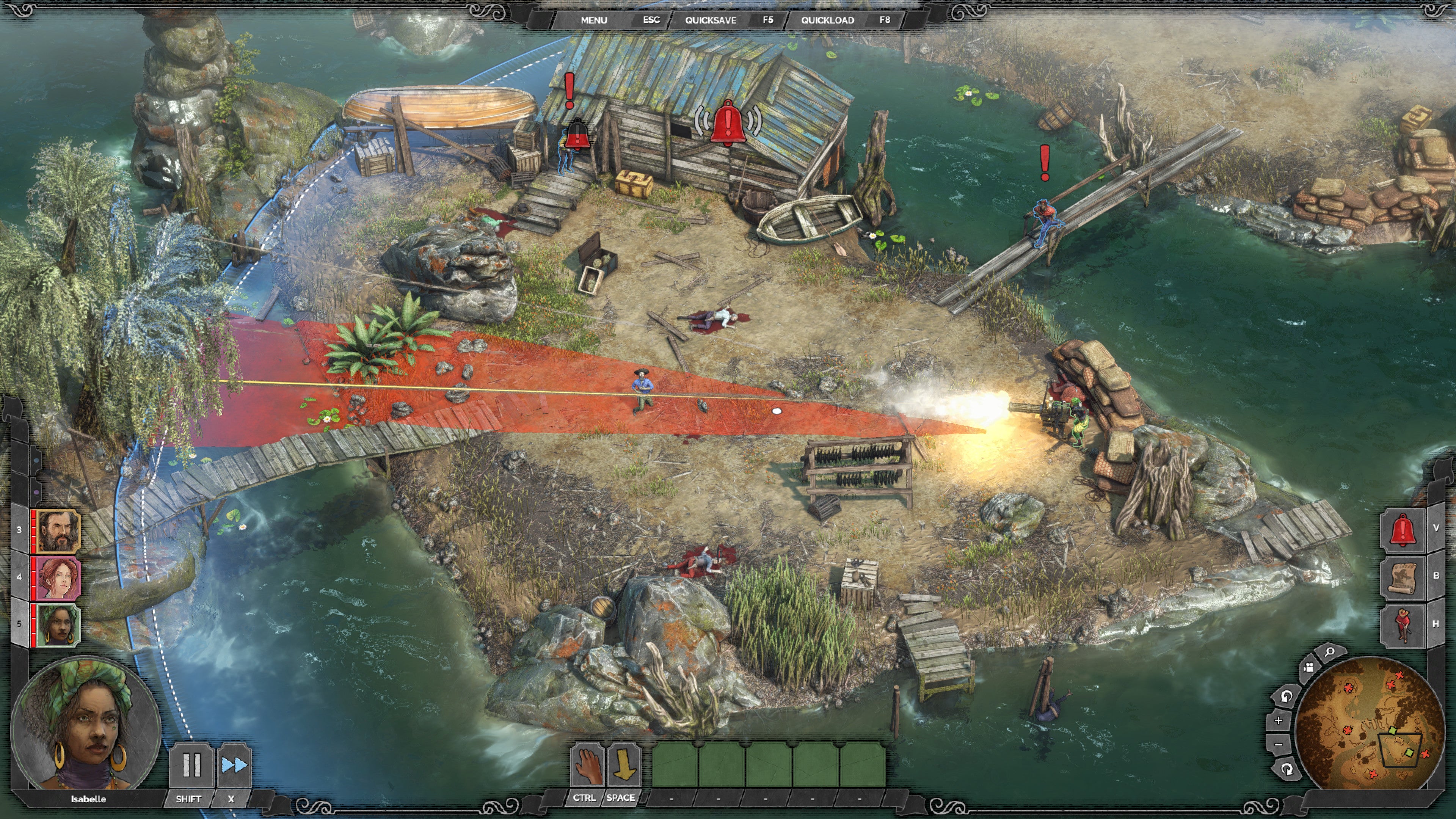In a blog post published today on Mimimi Games’ website, the studio announced they’re going to be referring to their work as “Stealth Strategy” games going forward, and they’re hoping this new genre label will help prospective players better understand their special blend of silent assassination tactics. This kind of shift isn’t without its challenges, though, so I caught up with the team at Mimimi to talk more about this newfound shift, and how it’s going to lay the foundations for what’s to come in Codename Süßkartoffel. Of course, by leaving the real-time tactics label behind, Mimimi aren’t saying the genre as a whole is now redundant. “Real-time tactics” still means a great deal to the development team, and for head of design Moritz Wagner, it conjures “flashbacks to my childhood, […] instantly [making] me think of playing Commandos and how hard it was.” He also told me he’s “still in awe of how incredibly solid and well done the fundamentals of these games laid out by Commandos are,” and that it’s been “incredibly rewarding to work on that, iterate on it, enhance it and try to make more people enjoy it.” For Codename Süßkartoffel, Moritz says they’ve “taken this genre to the next level in basically every way, which makes it all the more fitting that we are now relabelling the genre to Stealth Strategy.” He’s still tight-lipped about what that evolution will look like, but teases that “there [are] going to be so many ways to play [it], it’s such a cool sandbox that pushes this genre so far ahead and I just want to see what people do with it.” In some ways, you could say Shadow Tactics and Desperados 3 already offered the kind of sandbox approach to stealth Moritz mentions, as the open-ended nature of their tightly designed environments continue to offer plenty of ways of taking down their respective enemies. But for Moritz and his team, they say that many players still only think there’s “one solution” for each encounter – and it’s something they’re trying to rectify with Süßkartoffel by making it much more beginner-friendly this time. “It’s the beauty of this genre, that when you are equipped with the skills of our characters and a thought-out plan, you can make almost anything work if you time it right or make the right adjustments. Still, the fact that punishment was sometimes instant and harsh caused the games to come off as sort of ‘narrow’ for some people when it comes to possible solutions. “With Codename Süßkartoffel being so much more sandboxy in many regards, I think this feeling hopefully will come up less. You just don’t feel as constrained as in our older games, because you can freely select any character you want before each mission, and combine them with each other to fit your playtstyle or the solution you have in mind.” With such a big emphasis on sandbox stealth this time, it almost sounds like Süßkartoffel is aiming to become the next Metal Gear Solid V: The Phantom Pain, and when I put the question to Moritz about whether that would be an accurate assessment of what their next game’s going to be like, he says “yes and no”. “I think on a high level what Metal Gear Solid V did was that it took the Metal-Gear-like stealth formula and embedded it into a much more open structure. On a lower level, that meant changing level situations, skills and weapons in a way that made that work. On that high level, we are doing a similar thing for our formula. We take what made our games great and fun and build a new, more open and sandboxy structure around it. But what that means on the lower level might be different for our games. An example here would be the aforementioned free character-selection for any mission. For the other things we changed here, we are not ready to spoil that surprise yet.” Until that awaited spoiler moment, Mimimi says that laying down the framework of their new Stealth Strategy label is an important first step. “Our goal is to solve all these misconceptions that some might have had about our games in the past and to explain to new potential players, who haven’t heard of us before, what kind of game we’re actually developing, and most importantly, why it’s fun. And we think you need to find a way to do that as swiftly as possible,” says communications lead Matthias Kraut. “We’re confident that, alongside other factors, this will help to convince more people beyond our core fans to give the game a real chance.” Part of this problem stems from there not being many games to compare them to, says communications manager Elena Schulz. “Of course, you can always use Commandos as a reference and label them as a modern version of it with a different setting, but if you (or your audience) aren’t aware of Commandos, it’s much harder to describe the games accurately,” she says. “If you use stealth game or strategy game instead, you will not be able to communicate an important part of the experience. Both are used for very different games from Shadow Tactics or Desperados 3, and can lead to confusion or false expectations. Essentially, even though there are similarities, you probably shouldn’t expect Assassin’s Creed when you start Shadow Tactics.” Kraut adds that even the team “struggled with this ourselves from time to time,” citing a couple of times they weren’t able to answer even the “simple question of ‘What kind of game is it?’ in previous media interviews. That’s why they’ve been using the Stealth Strategy label to describe Süßkartoffel “internally and externally since last year”. Platform categories on storefronts often don’t help either, says Schulz. “Our hope for the future is that Stealth Strategy becomes something people associate with our games and similar games, in order to make it easier to describe and recommend them to others. Of course, it would be nice to have a store category for that as well – maybe one day it will go a similar path like Soulslike or Roguelike and people will know immediately what kind of game is referred to when hearing Stealth Strategy.” I ask the team whether they ever considered making their own “like” label, but Kraut says a genre name such as Soulslike “is something that can only happen organically.” Indeed, for a while “people compared our games to Commandos a lot […] but something like Commandos-like didn’t stick,” he says. “If we tried coining a genre in that style for Codename Süßkartoffel, I believe we would just come off as super pretentious, haha. If the fans and players around the world decide to call our genre “Süßkartoffel-like” in the future, so be it. For now, we’re happy with Stealth Strategy, and in a way it works even better, because you don’t need to be aware of another game like Commandos or Dark Souls.” Are Mimimi worried that said fans and the wider gaming population more generally will just instantly revert back to calling them real-time tactics games? A little, perhaps, but Kraut says “the plan is to use this new genre label in all our communication efforts, ranging from the official game description to the trailers and so on. The very first thing that you will learn about Codename Süßkartoffel, aside from its official name and the setting, is that it’s an ‘all-new stealth strategy game’ because it’s such an important message to us. I think we will have to see if it’s going to stick, if people will remember and actually use it. Then we might push for an own genre category on Steam and beyond. “But we’d already consider our strategy to rename the genre a success if it helps to make the game’s concept easier to grasp for people, who are not yet familiar with our games or have been wary so far to try them out, because real-time tactics perhaps sounded too different or complicated. And not having to read dozens of different variations and interpretations of our game genre, something we encountered constantly with real-time tactics, would be the cherry on top.”
